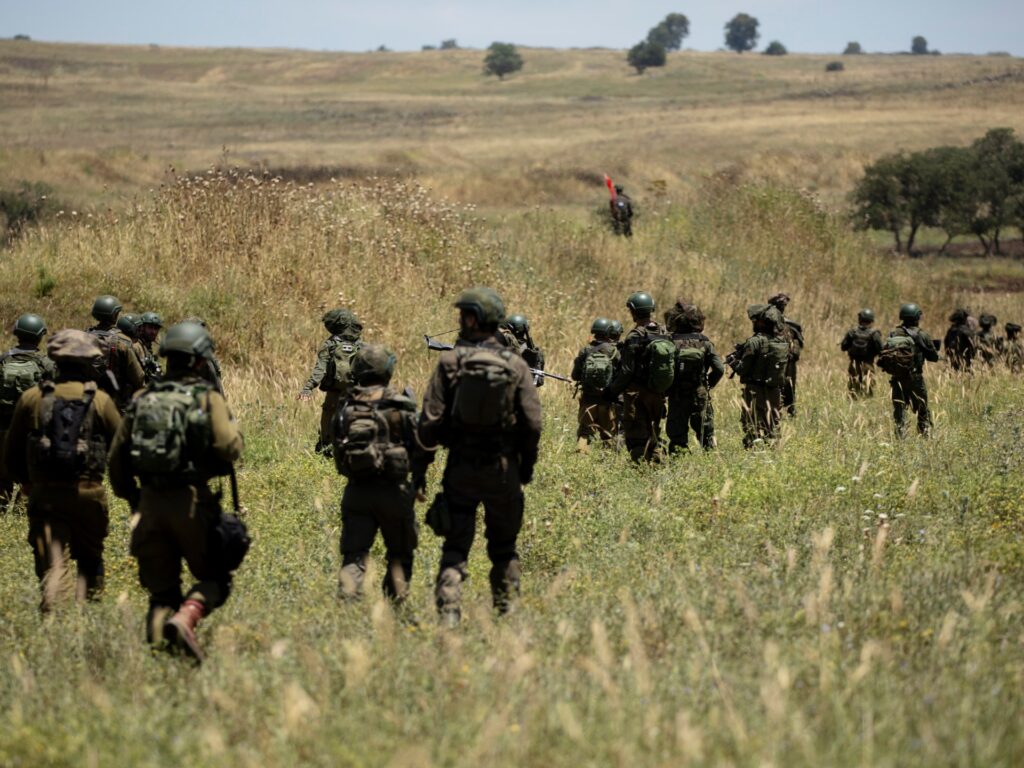10/24/2024–|Last updated: 10/24/202410:43 AM (Mecca time)
An opinion article in Haaretz newspaper shed light on the conditions of Israeli soldiers who are currently fighting wars on several fronts, especially in the Gaza Strip with the Islamic Resistance Movement (Hamas), and in Lebanon with Hezbollah.
The author of the article, Sami Peretz, said that the condition of the Israeli soldier, under the current government, has never been worse than it is today. The period of compulsory conscription was extended by 4 months, the duration of reserve military service was tripled, and the retirement age for reserve soldiers was increased by an additional year.
Moreover, any Israeli soldier kidnapped to the Gaza Strip will be the last to be released in any deal that returns the prisoners to their homes, if an agreement is reached in this regard, according to the article.
Peretz said that all this is happening at a time when the government is proposing a draft law to exempt ultra-Orthodox Jews (Haredim) from compulsory conscription, even though the army has lost more than 10,000 soldiers who were killed, wounded, or suffered from psychological disorders.
The Israeli army lost more than 10,000 soldiers who were killed, wounded, or suffered from psychological disorders.
According to the writer, this case raises two questions. First, why do people still agree to perform military service? Secondly, how long will they agree to perform it in a situation that threatens a war with no end in sight, without him participating in it? On their side “Their ultra-religious brothers,” when it seems clear that if they fall into enemy hands, the chances of their return will be slim?
He explained that the answer to the first question is easy, which is that the military spirit of the general popular movement in Israel is “very strong,” and he attributes the reason for this to the official religious education system in the country, which gives sanctity to military service. He added, continuing, that this spirit has been strengthened since the Al-Aqsa flood.
But Peretz believes that answering the second question is difficult, as there has not yet been a sustainable truce in the Gaza Strip that leads to a permanent ceasefire, an agreement to exchange Palestinian prisoners for all Israeli hostages, the withdrawal of Israeli forces, and the opening of the crossings to allow the passage of goods and people. Rather, what happened was the expansion of the war towards the north, the extension of the period of reserve service, and the killing of more hostages in captivity.
In light of this, what conclusion are soldiers supposed to reach about the government’s actions? The writer asks and answers, saying: If these soldiers have little time to think about the matter during the periods between carrying out military missions, the inevitable conclusion is that the government does not care about them.
He continued to say that the government views them as “tools, and they have to do what they are told to do, that is, risk their lives, livelihoods and families even though the government and those leading them are not willing to risk anything that would jeopardize their authority.”
According to the article, Israeli Prime Minister Benjamin Netanyahu has traditionally described the security situation as an existential threat to the state, but at the same time he strives to exempt the Haredim from military service, and praises the soldiers who fell in battle, but abandons their comrades who were kidnapped.
Peretz concluded his article in a tone that was a mixture of pessimism and sarcasm, apparently directing his speech to the government and the leaders of the Israeli army, where he said: “Let the soldiers put their lives in danger so that not a hair on Netanyahu’s head will be touched.”

